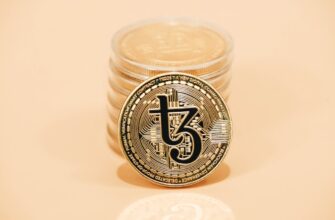- Introduction: The Critical Question of Stablecoin Safety
- What Are Stablecoins? Digital Dollars Explained
- USDT (Tether) Safety Analysis: Strengths and Concerns
- USDC (USD Coin) Safety Deep Dive: The Regulator’s Favorite?
- 5 Critical Safety Factors Compared
- USDT vs USDC: Direct Safety Comparison
- The Verdict: Which Is Truly Safer?
- USDT vs USDC Safety FAQ
Introduction: The Critical Question of Stablecoin Safety
In the volatile world of cryptocurrency, stablecoins like USDT and USDC promise stability by pegging their value to traditional assets. But when your money is on the line, one question dominates: USDT vs USDC – which is safer? This comprehensive analysis breaks down security factors, transparency, and real-world risks to help you make informed decisions in the $130B+ stablecoin market.
What Are Stablecoins? Digital Dollars Explained
Stablecoins are cryptocurrencies designed to maintain a fixed value, typically 1:1 with the US dollar. They bridge traditional finance and crypto ecosystems, enabling faster transactions than banks while avoiding Bitcoin’s price swings. The two giants dominating this space are:
- USDT (Tether): Launched in 2014, oldest and most widely used stablecoin
- USDC (USD Coin): Created in 2018 by Circle and Coinbase
USDT (Tether) Safety Analysis: Strengths and Concerns
Tether’s $110B market cap makes it the industry leader, but its safety record sparks debate. Key considerations:
- Backing Composition: 85%+ in cash/cash equivalents per Q1 2024 reports, but includes commercial paper and other assets
- Transparency Issues: Faced $41M CFTC fine for misrepresenting reserves in 2021; now publishes quarterly attestations
- Redemption Risk: Minimum $100K withdrawal threshold for direct redemptions
- Market Dominance: Handles 70% of BTC trading volume – systemic risk if faltering
USDC (USD Coin) Safety Deep Dive: The Regulator’s Favorite?
USDC’s $32B market presence emphasizes compliance and transparency:
- Reserve Backing: 100% cash and 3-month U.S. Treasuries – no commercial paper
- Audit Rigor: Monthly attestations by Grant Thornton; full audits since 2021
- Regulatory Alignment: Issuer Circle holds NYDFS BitLicense and operates under US money transmitter laws
- Redemption Access: 1:1 redemptions for verified users with no minimums
5 Critical Safety Factors Compared
Evaluate both stablecoins using these security metrics:
- Asset Backing Quality: USDC’s Treasuries vs USDT’s mixed reserves
- Transparency: USDC’s monthly proofs vs USDT’s quarterly reports
- Regulatory Compliance: USDC’s clear U.S. oversight vs USDT’s global regulatory challenges
- Counterparty Risk: USDC’s established U.S. entities vs USDT’s offshore parent
- De-Peg History: USDC’s brief 2023 Silicon Valley Bank dip (recovered in days) vs USDT’s 2018 5% drop
USDT vs USDC: Direct Safety Comparison
| Safety Factor | USDT | USDC |
|---|---|---|
| Reserve Composition | Cash, Treasuries, Commercial Paper | 100% Cash & Short-Term Treasuries |
| Audit Frequency | Quarterly Attestations | Monthly Attestations + Annual Audits |
| Regulatory Status | Multiple ongoing investigations | Licensed in all 50 U.S. states |
| De-Peg Events | 4 significant incidents since 2017 | 1 brief de-peg (March 2023) |
| Redemption Minimum | $100,000 | $1 |
The Verdict: Which Is Truly Safer?
Based on reserve quality, transparency, and regulatory compliance, USDC emerges as the safer choice for risk-averse users. Its U.S. Treasury-backed reserves and rigorous audits provide clearer asset verification. However, USDT’s massive liquidity makes it indispensable for traders – despite higher counterparty risk. For long-term holdings exceeding $10K, USDC’s robust framework offers superior protection. Always diversify holdings and monitor issuers’ quarterly reports regardless of choice.
USDT vs USDC Safety FAQ
Q: Has USDT ever failed to honor redemptions?
A> No verified cases exist, but 2021 settlements revealed past reserve shortages. Current processes require large minimum withdrawals.
Q: Why did USDC de-peg in 2023?
A> Temporary $3.3B exposure to failed Silicon Valley Bank caused a 13¢ dip. Full recovery occurred within 3 days after U.S. government intervention.
Q: Can regulators shut down USDT or USDC?
A> Possible through enforcement actions, but unlikely without transition plans. USDC’s compliance makes this less probable versus USDT’s ongoing regulatory scrutiny.
Q: Which stablecoin do institutions prefer?
A> Major financial entities like BlackRock and Visa increasingly use USDC due to its regulatory clarity and transparency standards.








